To accompany your Come Follow Me study for July 22-28
In addition to reading Alma 32-35, you will enjoy watching the accompanying related videos:
You will also enjoy reading the following related commentary from the Book of Mormon Institute Student Manual:
If you would like a Kahoot game related to this material which you could use for personal study or use with your family or your class, click here: https://create.kahoot.it/share/alma-32-35/980febab-aff0-4c88-8550-cdc95e97fb20 . To use it with a group, after clicking on this link, you will need to log into Kahoot, creating a free account if you have not done so previously, then click on the blue “Start” button. Some of the Kahoot questions may presuppose that the player has read through the suggested answers to the following Points to Ponder and at least has browsed the Institute student manual as well.
Points to Ponder in Alma 32-35
1. Alma and Amulek had “success among the poor class of people.” (32:2.) Why did they work with the poor people rather than with the wealthier leaders, as Ammon and his brothers did on their mission? Which is the better approach?
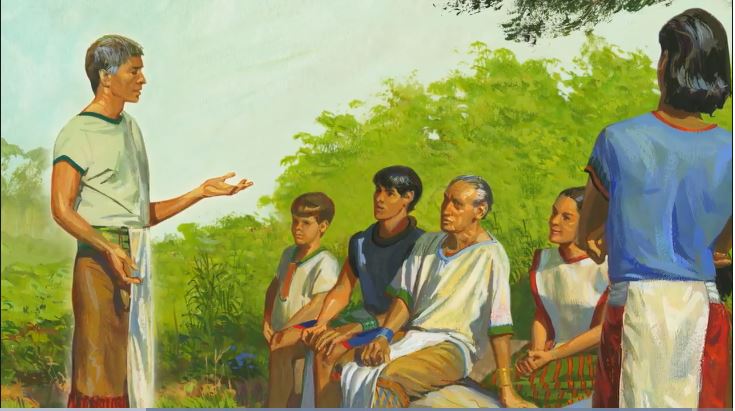
2. What are the two major ways in which we can become humble, why is one of those ways so much better than the other? (Alma 32:13-15)
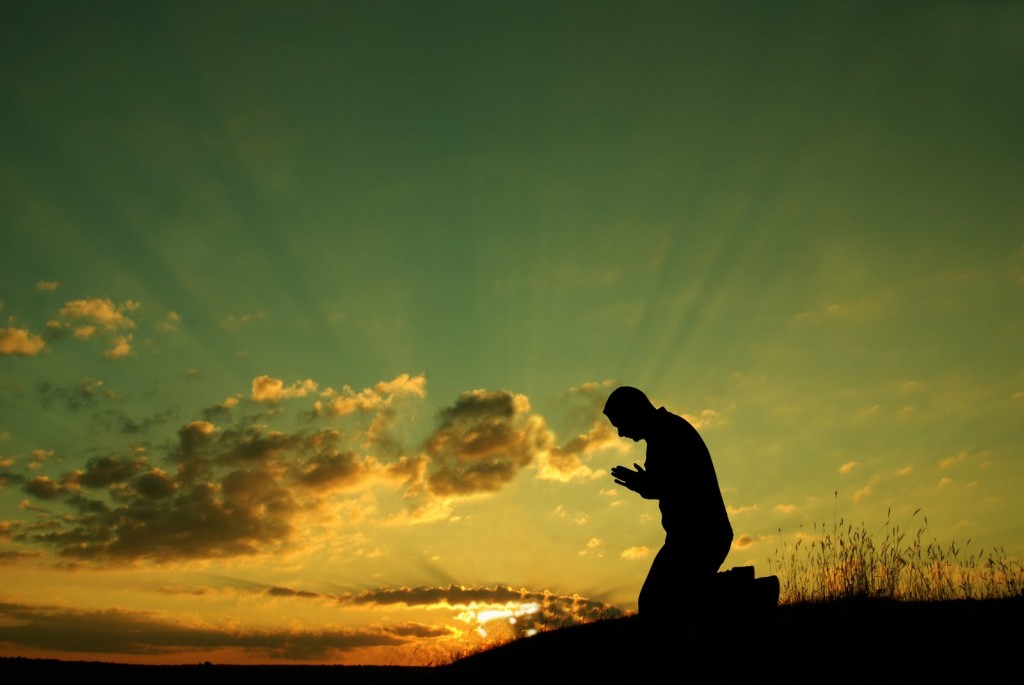
3. How can you help someone get a testimony who would like to have one but doesn’t know how to go about getting one? (Alma 32:26-33)

4. How can you help someone get a testimony who really isn’t interested in having one? And what does the picture below have to do with the question? (Alma 32:26-33)

5. What is “blind faith”? Why don’t Latter-day Saints believe in having it? (Alma 32)

6. Explain in your own words Alma’s analogy of planting a seed. (32:28-43)

7. What kind of things can we and ought we to pray for, when, where, and how often ought we to pray, and what can we do to ensure we get the results we want from prayer? (Alma 33-34; 34:17-29, 39.) What personal or vicarious experiences can you share concerning the practical application of these principles?

8. Explain in your own words what Alma is talking about in 33:19-22 about the “type raised up in the wilderness.” What examples can we see today of people making the same mistake the Israelites made of whom Alma is speaking here?
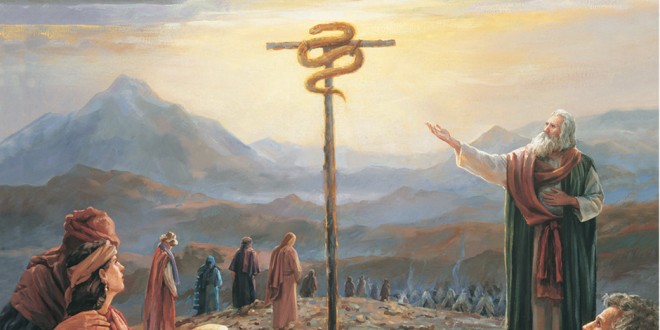
9. Explain what Amulek means when he says that Christ’s atonement is both a “great and last sacrifice” and an “infinite and eternal sacrifice.” (34:10.)

10. Explain the relationship of the atonement of Christ to the principles of justice and mercy. (34:15-16)

11. Why does Amulek says that if we repent, “immediately” the great plan of redemption is brought about unto us, even if we won’t be dying or getting resurrected for at least several decades? (Alma 34:31)
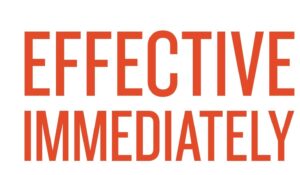
12. Why is the temptation to procrastinate one of Satan’s most effective tools, and what practical suggestions do you have for others who procrastinate more than you do? (Alma 34:32‑34)
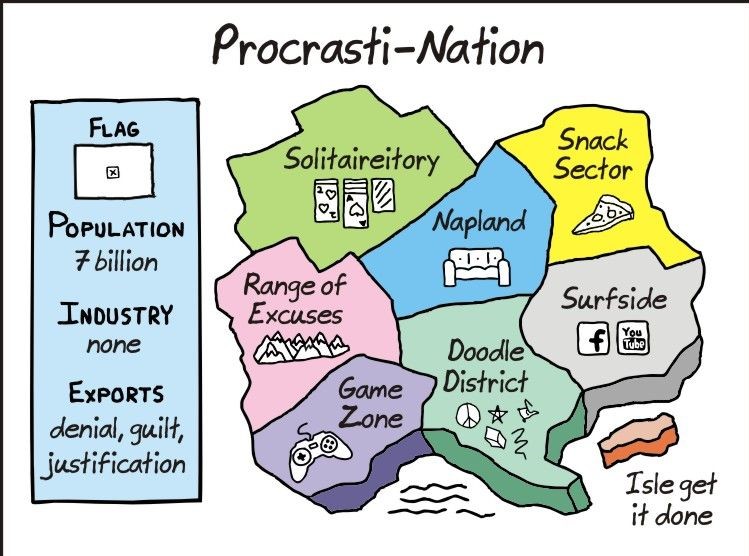
13. Why does Amulek say that after we die “then cometh the night of darkness, wherein there can be no labor performed” (34:33), when we know from other scriptures that in the spirit world we continue to work, grow, and progress?
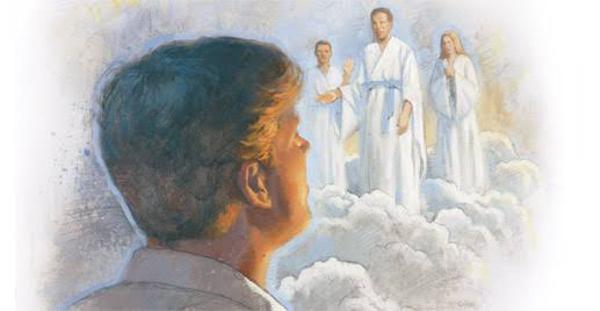
Possible Answers to Points to Ponder in Alma 32-35
1. Alma and Amulek had “success among the poor class of people.” (32:2.) Why did they work with the poor people rather than with the wealthier leaders, as Ammon and his brothers did on their mission? Which is the better approach?
In this case the poor were the ones most willing to listen. The “better approach” depends on the circumstances. If the more wealthy and influential can be brought into the Church first, they can more easily provide needed leadership and attract others to listen to the message. But as the poor are generally much more receptive, missionaries understandably have through the years worked more with them.
2. What are the two major ways in which we can become humble, and why is one of those ways so much better than the other? (Alma 32:13-15)
One can be humble because he is so poor and unsuccessful that he has little alternative, or he can humble himself because the gospel teaches us we should. Alma tells us that the latter is much better—presumably because the reward is greater for having chosen humility rather than having been subjected to it. Forced humility due to poverty or failure does not necessarily imply a broken heart with which the Lord can work, though it may increase the odds.
3. How can you help someone get a testimony who would like to have one but doesn’t know how to go about getting one? (Alma 32:26-33)
Assure him that he has already completed the first step—that of “hoping” it is true. (Alma 32:21), or “desiring to believe.” (Alma 32:27.) Then, as Alma suggests, encourage him to try it out—much like one could plant a seed. If the seed grows and produces delicious fruit, it was obviously a good seed. Likewise, if living the gospel brings the promised joy and enlightenment, one will know it is true.
4. How can you help someone get a testimony who really isn’t interested in having one? And what does the picture below have to do with the question? (Alma 32:26-33)
As faith begins with a “desire to believe” (Alma 32:27), we would first have to work on creating the desire. Until then, it is useless to pile evidence on top of evidence before an uninterested individual. The desire could arise from being shown the joy that can come from the gospel. For example, one who really loves his family should find the promise of eternal families appealing. If one really understood all that the gift of the Holy Ghost can do for him, he would be more interested in getting it. In other words, before we can help someone know that the gospel is true, we first have to help him understand that if it were true, it would be good news. To use Alma’s analogy, we would have to convince him that the seed, when sprouted, yields peaches rather than turnips! Too many think that religion is designed to keep us from having any fun. They have to be shown that it not only is the source of good, clean “fun” but of something much deeper and more wonderful—a happiness and joy that the world knows nothing about.
5. What is “blind faith”? Why don’t Latter-day Saints believe in having it? (Alma 32)
“Blind” faith would be believing in something with absolutely no evidence of its validity. We have never been asked to have that kind of faith. Instead, we are to look objectively at the evidence, listen to the claims of true religion, and test them to see if the promised blessings come from the prescribed actions. Only then can we have an intelligent, as opposed to a blind, faith.
6. Explain in your own words Alma’s analogy of planting a seed. (32:28-43)
Alma is saying to try out the gospel and see if it works. For example, Moroni promises a testimony of the Book of Mormon to those who read it sincerely and ask if it’s true. That would be one way to “plant the seed.” Experimenting with going to church, praying, paying tithing, and otherwise living like a true believer for a time would be another way. If joy and enlightenment come as a result, it would lead one to have confidence that the “seed” is good. Just as a planted seed has to be subsequently watered and fertilized, of course, a newly planted gospel seed has to be nourished by continued study, prayer, and righteous living before it will produce a mature faith.
7. What kind of things can we and ought we to pray for, when, where, and how often ought we to pray, and what can we do to ensure we get the results we want from prayer? (Alma 33-34; 34:17-29, 39.) What personal or vicarious experiences can you share concerning the practical application of these principles?
Amulek teaches us that we can and ought to pray first for mercy, but also for temporal blessings of all kinds as well as spiritual needs. He suggests praying not only morning, mid-day, and night but having a prayer in our hearts at all other times. Alma clarified that one doesn’t need to pray only in church but can and ought to do so at home, in our fields (i.e., at work), in our “closets,” and even in the wilderness. Amulek reminds us that the Lord is unlikely to hear us if we don’t at the same time attend to the needs of the poor and needy. He also tells us we should “live in thanksgiving daily,” so surely a major part of our prayers should be to thank the Lord for what He has already done rather than merely ask for more. Each of us likely could share multiple experiences of answers to prayer, even in “little” things, where the Lord has stepped in to help us with specific needs.
8. Explain in your own words what Alma is talking about in 33:19-22 about the “type raised up in the wilderness.” What examples can we see today of people making the same mistake the Israelites made of whom Alma is speaking here?
He is referring to the image of the serpent which the Lord instructed Moses to make in the wilderness and hoist onto a pole after people had been bitten by poisonous snakes, with the promise that by looking at the brass serpent they would be healed. Many would not look because they “knew it wouldn’t work.” Similarly today, for example, some with troubled marriages or wayward children don’t even try to have family prayer, family scripture study, or family home evening, because they think those are too simple to be effective.
9. Explain what Amulek means when he says that Christ’s atonement is both a “great and last sacrifice” and an “infinite and eternal sacrifice.” (34:10.)
It is last because thereafter there would be no animal sacrifice required. It is great because it pays the price of the sins of all mankind. It is infinite and eternal because it applies not only to those of His day or those born prior to Him but also to all who ever had lived or ever would live not only on this planet but on all the other worlds without number He had created under His Father’s direction.
10. Explain the relationship of the atonement of Christ to the principles of justice and mercy. (34:15-16)
Justice requires a payment for all sins, but you and I don’t have enough “money in the bank” to make the required payment. But Christ did, and in His mercy He paid for us so that we wouldn’t have to either pay or suffer the consequences of not having paid, provided we would accept His terms (repent and follow Him). Justice is thus satisfied by Christ’s merciful payment on our behalf, and neither principle is ignored to give priority to the other.
11. Why does Amulek says that if we repent, “immediately” the great plan of redemption is brought about unto us, even if we won’t be dying or getting resurrected for at least several decades? (Alma 34:31)
The atonement doesn’t just bring us a resurrection hereafter, it brings us the Spirit and its attendant blessings of joy, peace, power, and enlightenment here and now. This is what “immediately” comes to us if we accept the gospel.
12. Why is the temptation to procrastinate one of Satan’s most effective tools, and what practical suggestions do you have for others who procrastinate more than you do? (Alma 34:32‑34)
Most of us have enough of the light of Christ in us not to be fooled by Satan’s pleas for us to go out and commit egregious sins. But his suggestion that we simply postpone our complete repentance or our involvement in gospel projects seems much more innocuous. Most don’t plan not to make their ministering visits, for example—they just don’t plan when to do it and make the required appointments. The same is true for going to the temple, doing family history, and sharing the gospel. It helps to plan on paper all that one really wants to get done and then actually write down on an agenda or calendar when one will do it and hold that commitment sacred.
13. Why does Amulek say that after we die “then cometh the night of darkness, wherein there can be no labor performed” (34:33), when we know from other scriptures that in the spirit world we continue to work, grow, and progress?
Evidently, from what Amulek says, there are two senses in which one might not be able to perform labor after death. First, with regard to what one intended to do in this life, surely the opportunities have passed when one dies—such as sharing the gospel with specific friends, losing weight, getting sealed in the temple, etc. Secondly, Amulek teaches that the same spirit we have with us when we die accompanies us to the next life, so if we were procrastinating here, we are even more likely to continue to do so hereafter. It appears that once we pass on, our personalities somehow seem to “harden” and become more resistant to change. Those who didn’t have an opportunity here, of course, are under no such limitations hereafter, and those who were energetically striving to improve themselves here will have those same inclinations and abundant opportunity in the spirit world.
